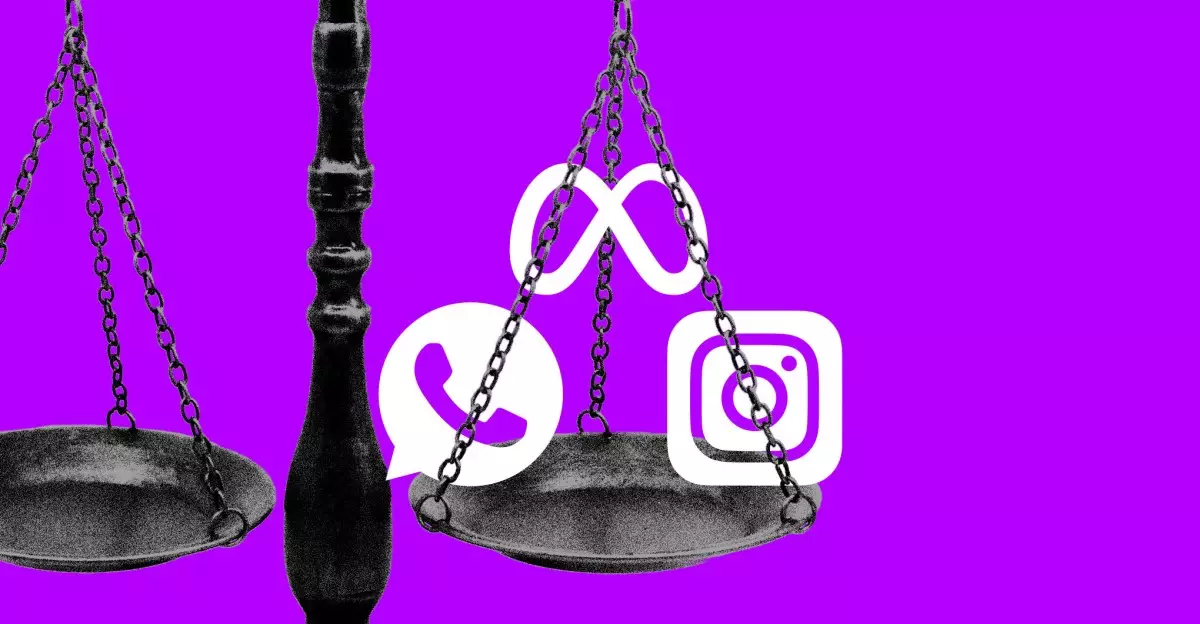In a landmark trial that has captivated the tech world, Mark Zuckerberg found himself in the hot seat during the FTC v. Meta proceedings, where the government is scrutinizing his company’s acquisitions of WhatsApp and Instagram. With a combined price tag of nearly $20 billion, these purchases have fueled myriad debates surrounding monopoly and antitrust issues. Zuckerberg’s defense pivots on a claim that these acquisitions were not simply strategic moves to extinguish competition but forward-thinking investments that would enhance his social media empire. As the courtroom drama unfolded, observers watched closely, not only for the legal implications but for insights into the mind of one of the tech industry’s most polarizing figures.
An Unexpected Admission
One of the standout moments from Zuckerberg’s testimony came when he was asked about the hefty $19 billion price tag for WhatsApp. With characteristic poise, he broke into a smile and unabashedly stated, “I’d do it again.” This declaration encapsulates the confidence he has in his vision for the future of communication. While the FTC has framed the acquisition as an attempt to eliminate a potential rival, Zuckerberg argued that he perceived WhatsApp not as a threat but as a valuable asset. It’s this belief that forms the bedrock of his defense—he viewed WhatsApp’s potential to reshape online communication as vital to Facebook’s evolution, rather than as a competitor to be quashed.
The Shift to Private Communication
Central to Zuckerberg’s argument was the acknowledgment that the digital landscape was transforming. He noted that users were gravitating towards private messaging, moving conversations off public platforms like Facebook’s News Feed. This shift, he argued, justified the purchase of WhatsApp—not as an act of desperation but as a calculated move in response to changing consumer preferences. Zuckerberg emphasized that the WhatsApp co-founders were initially uninterested in competing in the social media space, framing their disinterest as an opportunity rather than a concern. This reading of the situation raises the question: could Facebook’s success be predicated not on a strategy to neutralize rivals, but on an acute ability to identify and capitalize on emerging trends?
The Uneasy Relationship with Apple and Google
Zuckerberg’s testimony also highlighted the complicated dynamics between Meta and tech behemoths like Apple and Google. He articulated a palpable apprehension about their power over app distribution, suggesting that acquiring WhatsApp and Instagram would bolster his negotiating leverage with these giants. This notion adds a layer of complexity to the narrative—are these acquisitions a mere facade for protection against market forces beyond his control? His admission that he was “not sure how much this actually helped” underscores the uncertainty inherent in high-stakes corporate maneuvers. Despite the looming threat of antitrust actions, Zuckerberg’s approach emphasizes a belief in his ability to navigate the competitive landscape through shrewd investments.
Reframing Competition and Growth
Throughout the trial, Zuckerberg sought to reframe the conversation around competition and growth. He painted a picture in which both WhatsApp and Instagram were nurtured investments that propelled Meta into a new era, rather than casualties of a malicious strategy. The statistics he presented served as a powerful counterpoint to the FTC’s claims: WhatsApp boasts nearly 3 billion users today, exceeding original projections, while Instagram’s user base has swelled to over 2 billion since its acquisition. These figures complicate the narrative of dominance, suggesting that Zuckerberg’s strategy may have led to vast enhancements in user experience and value creation.
Acknowledging Past Misrecognitions
Notably, the trial also included revelations from Sheryl Sandberg, Meta’s former COO, who reflected on an email expressing concerns about the $1 billion spent on Instagram. Her admission that she might have been mistaken invites a reconsideration of the reticent skepticism surrounding such acquisitions. In a world where doomsday predictions often drown out optimism, Sandberg’s change of heart serves as a reminder that major investments may sometimes defy initial expectations, yielding unforeseen benefits.
An Ongoing Narrative
This trial does not merely reflect a confrontation between a tech titan and regulatory bodies; it encapsulates a broader dialogue about the responsibilities of companies vying for dominance in an increasingly interconnected world. The transformation of digital communication is dynamic, and as Mark Zuckerberg navigates the complexities of legal scrutiny, the implications of his choices will resonate well beyond the courtroom. Whether these decisions represent sound strategy or monopolistic tendencies remains to be seen, but they undoubtedly reflect a bold vision for the future of tech.

